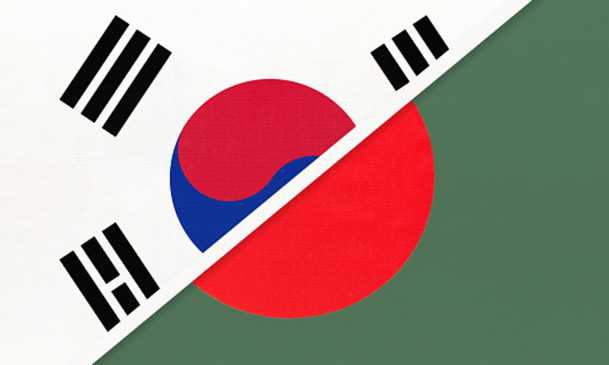Korea-Bangladesh ties in the face of Covid-19 and LDC graduation

Image collected
Every year on another of October, the Republic of Korea celebrates its National Foundation Day, Gaecheonjeol, which marks the founding of the oldest dynasty in Korean history. It really is a great pleasure to celebrate this important day and honour the legacy of our forefathers with the persons of Bangladesh and Korean expatriates moving into Bangladesh. The Korean Embassy used to host an gross annual reception to celebrate today, inviting friends and partners in Bangladesh plus the diplomatic community. Unfortunately, because of the unprecedented situation created by the Covid-19 pandemic, we will celebrate it nearly this year on a special website (www.bd-korea.com), that will open at 10 am on October 3. I invite you all to visit the site, join our celebration and revel in the various interesting contents.
This season, the occasion is all the more meaningful as it coincides with the 100th anniversary of the birth of Bangabandhu Sheikh Mujibur Rahman. His devotion to Bangladesh's independence and well-being of his people continues to inspire people all around the world. The hearts of the Korean persons are with fellow Bangladeshis as Bangladesh celebrates the Mujib year.
Although Covid-19 has adversely impacted each and every corner of our lives, Korea remains focused on strengthening its friendly ties with Bangladesh. From the outset of the pandemic, the two governments have communicated closely with respect to their domestic situations, immigration and aviation policies, and possible measures to jointly tackle the crisis.
To help Bangladesh curb the spread of the virus and overcome the subsequent monetary challenges, the Korean government as well as KOICA, Korea's aid agency, have provided or committed to render a total folks 1.2 million worth of test kits, masks, PPEs, emergency food, and walk-through test booths. Also, Korea's finance ministry and Korea Eximbank are jointly reviewing a proposal for providing concessional loan to support the monetary stimulus package rolled out by the government of Bangladesh. Furthermore, Korea has actively shared our experiences, guidelines and technical expertise accumulated inside our fight against the virus with partner countries including Bangladesh with a series of webinars.
Because the establishment of diplomatic fits in 1973, Korea and Bangladesh have strengthened cooperation in a variety of areas such as for example trade, investment, development, and people-to-people exchanges. Prime Minister Sheikh Hasina's visit to Seoul this year 2010 and the then Prime Minister Lee Nak-yon's visit to Dhaka in 2019 marked new milestones in the bilateral relationship.
The total volume of bilateral trade reached USD 1.7 billion this past year. Korea's cumulative investment to Bangladesh, according to Bangladesh Bank, amounted to USD 1.2 billion last year, ranking 6th among other investors and even surpassing China, Japan, & most European countries. There are around 150 Korean companies operating in Bangladesh with practically half of them buying Export Processing Zones. This makes Korea the very best foreign investor in EPZs.
In early stages, Korean companies like Youngone have invested heavily in Bangladesh's ready-made garments (RMG) industry, which currently makes up a lot more than 80 percent of Bangladesh's export. While Korea is proud to have contributed to the development of RMG sector in Bangladesh, it really is wanting to elevate the Korea-Bangladesh relationship into a higher-level, further expanding the regions of cooperation into infrastructure, energy, ICT, and electronics manufacturing. Shahjalal International Airport's third terminal, Meghnaghat 750MW power plant, and Matarbari 1200MW power plant are being constructed by Samsung, Posco, and Hyundai, in fact it is no secret that Korea's major electronics and automobiles companies are eyeing on Bangladesh for potential investment destination.
Korea is also one of Bangladesh's key development partners, having contributed so far a total of USD 160 million in grants through KOICA and USD 1.24 billion in EDCF concessional loan in various sectors including public administration, vocational training and education, transportation, communication, water management and health. In order to empower Bangladesh's health capacity, for example, Korea fully funded the establishment of National Institute of Advanced Nursing Education and Research and is supporting the ongoing construction of Bangabandhu Sheikh Mujib Medical University. In coordination with a Korean hospital, KOICA has also been implementing the "Eye Health Promotion and Prevention of Blindness" project in Savar.
Bangladeshi expatriates in Korea are another important pillar of our partnership. Among the 18,000 Bangladeshi nationals surviving in Korea, about half of them are semi-skilled personnel dispatched beneath the Employment Permit System (EPS) and practically 1,300 are students signed up for undergraduate and graduate programmes. The quantity of visitors from Bangladesh to Korea grew steadily recently reaching 18,478 in 2019, that is a whopping 36 percent increase in comparison to three years before. If regular direct passenger flights between Seoul and Dhaka were introduced, we'd see a straight larger increase in the volume of people-to-people exchanges.
It is worth noting the fantastic contributions created by Bangladeshi workers to the Korean economy, especially in the manufacturing sector where skilled employees are much in need. At the same time, Bangladeshi personnel in Korea have been sending home a substantial amount of wages, with Korea ranking 12th with regards to the origin of remittances by Bangladeshi expatriate workers. As the dispatch of new personnel to Korea has been temporarily afflicted by the pandemic, it'll regain momentum when the situation improves soon.
Despite the serious repercussions of Covid-19, Bangladesh's economy fared relatively well with a record inflow of remittances and export steadily picking right up the pace. With the Asian Development Bank forecasting 6.8 percent GDP growth in FY 2020-21, Bangladesh remains well positioned to graduate from the LDC status in 2024 and reach its goal to become a developed country by 2041. Being truly a strong and reliable partner, Korea will continue steadily to support Bangladesh on its journey to accomplish the well-being and prosperity because of its people. Joy Bangla.
Source: https://www.thedailystar.net